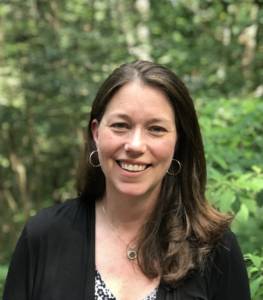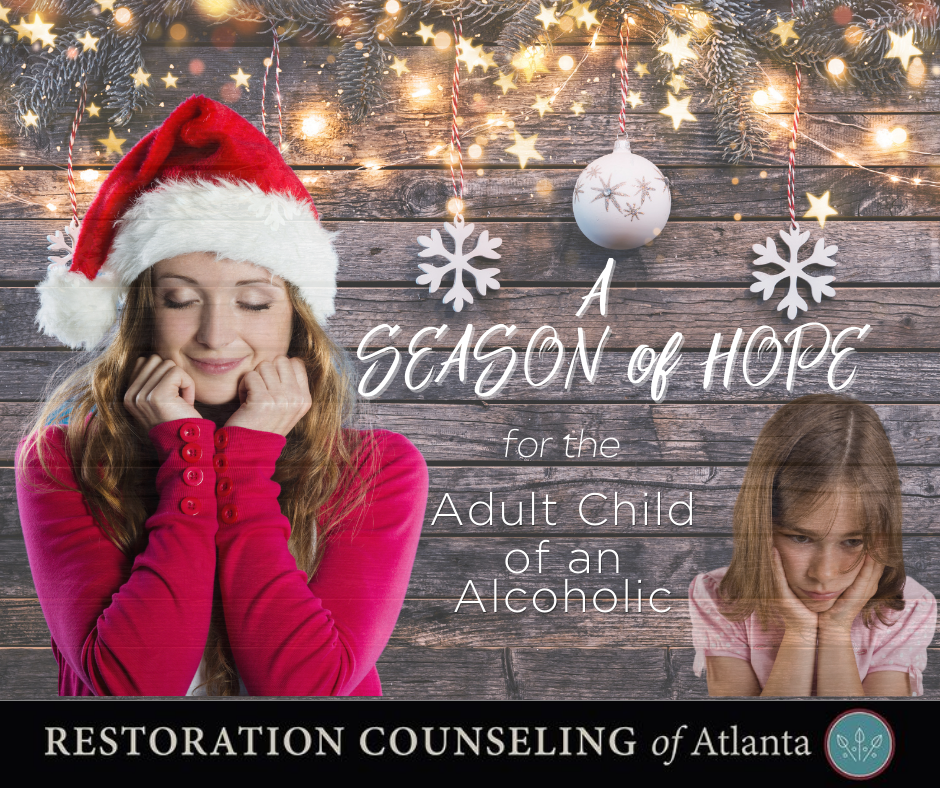A Child’s Confusion
Festive, colorful lights illuminated the boughs of the Christmas tree. The scent of fresh pine filled the air. It was Christmas Eve, and the young child sat alone by the tree, taking in its wonder. She thought about the miracle birth that she learned about in Sunday school – the “Babe in Swaddling Clothes” lying in the plastic Nativity outside the sanctuary door.
In the background, she could hear her mother and father fighting in the kitchen. It was nothing new. During December, the “merriest month of the year,” their shouts were frequent and frightening. Father swore, stumbled around, and drank to numb his misery. Mother, with a smile as plastic as the church Nativity, wore herself to a frazzle making the holidays as they “should be” – an attempt at merry, bright, and joyful.
The child knew the Christmas Eve routine. Six-o-clock would come, her mother would gather her and her brother in the car. All except Father would go to the Christmas Eve service at church. Every year it seemed that Mother would cry during the message and sing through tears as the congregation belted, “Joy to the World.” Feeling tense and confused, the child would hold her mother’s hand to offer a bit of comfort…
Alcoholism – A Family Problem
Like that of nearly 26 million other children across the United States, the young girl’s view of the world is being formed by a serious family issue – alcoholism. This is a disease with a biological component, but at its core is a way of thinking, feeling, and behaving to solve the problem of life’s discomfort. Drinking alcohol may give an addict momentary relief, but it perpetuates more of the pain he or she is trying to avoid. They may feel the impact for generations.
Children who grow up with a parent who drinks too much are often exposed to frequent arguments, inconsistent discipline, chaos, physical and/or emotional abuse, and neglect. Their home lives are characterized by instability and denial. This often leads to feelings of loneliness, confusion, fear, and shame. When these children grow up, they are called Adult Children of Alcoholics (ACOA). Adult Children of Alcoholics are survivors, but with an increased risk for relationship problems, depression, anxiety. As this perpetuates the cycle of addiction, they often live far from thriving lives.
ACOA Traits
Although each person is different, there are some traits common to Adult Children of Alcoholics. Not all ACOAs identify with every trait, but some will feel familiar if you are an adult child.
ACOA’s commonly:
- seek approval;
- guess what is normal;
- experience low self-esteem;
- have a victim perspective;
- find it difficult to have fun;
- suspect they could be happier but don’t know what that means;
- fear authority, abandonment, and criticism;
- tell lies when they could easily tell the truth;
- feel they are different from other people;
- experience isolation;
- have an overdeveloped sense of responsibility;
- keep secrets.
Help and Hope
If you identify with any of the traits on this list, it is important to know that you are not alone. Hope and healing are available. Because the impact on ACOAs begins in childhood, it is important to seek help from a counselor who has experience in addiction-related family problems. A counselor can help you understand the impact of addiction on your life and guide your recovery as you learn, grow, and heal.
In his book, Beyond Denial, Restoration Counseling of Atlanta’s addiction specialist Patrick Caffrey writes of the ACOA, “It is not uncommon for such persons to have a heart belief that says, “I believe I am what I am, and I cannot change…this belief is untrue, and the person in recovery needs to discover that even the ordinary person is more than ordinary and not only capable of changing, but accomplishing extraordinary things. Jesus said, “I am come that they might have life and that they might have it in abundance.””
Please, don’t let another year go by. This Christmas season, embrace the grace and healing of Immanuel (God with us).
PEACE
 Written by Andrea Brandt, NCC
Written by Andrea Brandt, NCC
andrea@restorationcounselingatl.com, ext. 154
Andrea received a Master of Arts degree in Clinical Mental Health Counseling from Richmont Graduate University, a Christ-centered university, and currently serves clients in Georgia as an Associate Professional Counselor under supervision and direction. She has continuing education and experience working with addiction and family-related issues, and in the application of Cognitive Behavioral Therapy (CBT), Exposure and Response Prevention (ERP) for OCD and Telemental health.

